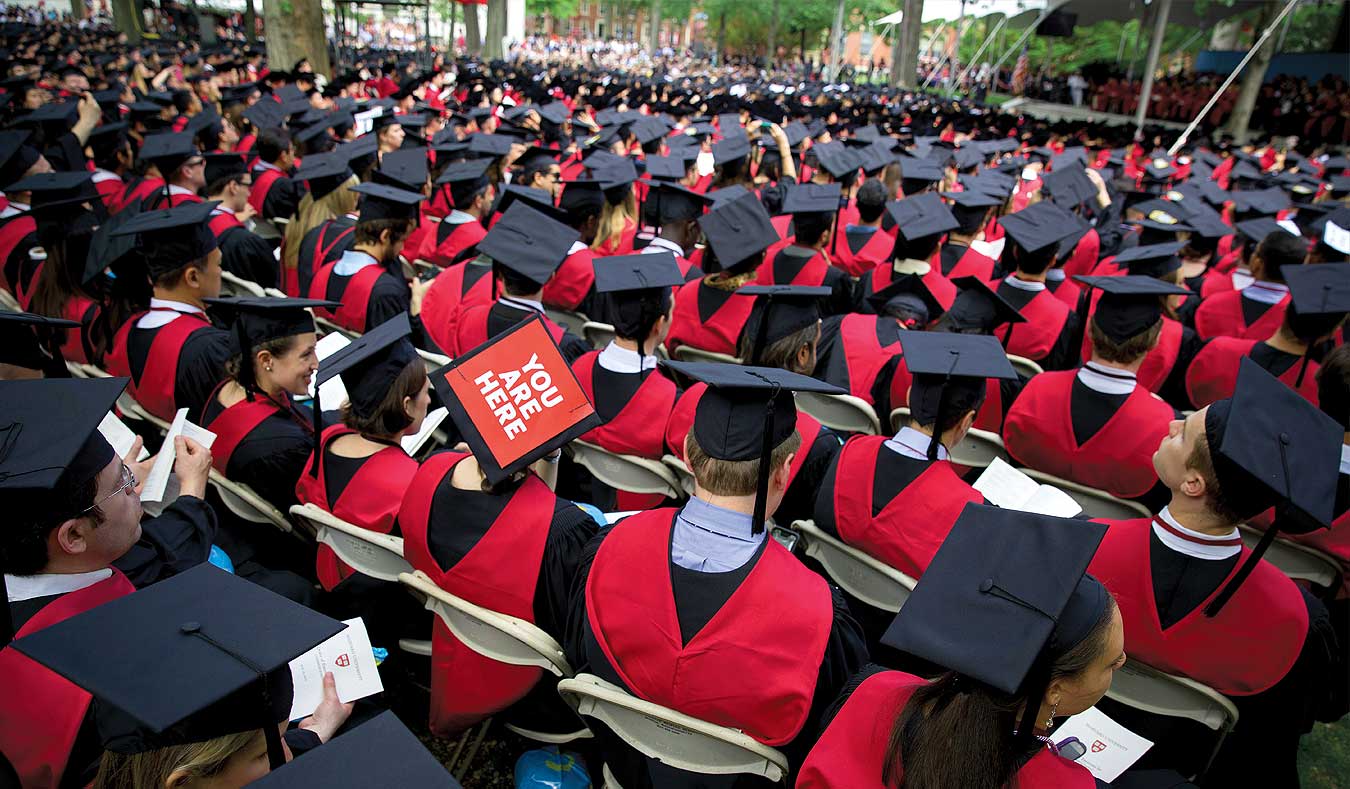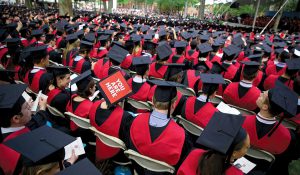Photo credit: HKS Magazine
By Andy Vo, MPP 2017
In response to “You’re Already in a Safe Space” by Zouhair Mazouz, MPP 2017
“What’s the point of a Chinatown anyway?”
Last year, then Asian Pacific American Caucus Chair Tracey Lam organized a walking tour of Boston’s Chinatown with local organizers. As our guide led us through Chinatown’s historic streets and the high-rise luxury apartments that have begun encroaching upon them, he expressed frustration at a question developers often asked him: “What’s the point of a Chinatown anyway?”
To him, Chinatown was a place where he didn’t have to explain himself. Where he didn’t have to explain his customs. His facial features. His clothing. His last name. His sense of belonging. It was what he thought white Americans had every day in most of America: a space where their experiences are considered standard and normal.
In “You’re Already in a Safe Space,” my classmate Zouhair Mazouz relates how he recently found himself in a heated debate about the role of non-Arabs in Harvard Kennedy School’s Arab Caucus, after he invited several non-Arabs to support his bid for presidency of the organization and, in his own words, “stir the pot.” Zouhair argues not only that the call for a “safe space” from several of his Arab classmates is unnecessary, but also that it betrays the responsibility that Harvard students have to engage with others to address today’s most pressing global challenges. I disagree with him on both counts.
With respect to the former, I think Zouhair might benefit from asking himself: “What’s the point of an affinity group anyway?”
An affinity group, broadly speaking, is one formed around a shared identity, interest, or goal—though I’m speaking largely about those around identity. Like Chinatowns, affinity groups often provide refuge. This July, activist and progressive strategist Sabrina Stevens explained to Vox’s Emily Crockett that “as a black woman, it’s really nice to just go out with other black women sometimes. I have to do so much less translation. When you’re black around white people, you have to explain every little thing, even with people who are perfectly nice and well-meaning.”
Malcolm Harris, a freelance writer and an editor at The New Inquiry, has traced the origin of the term “safe space.” In an article this past November, Harris cites the conclusion of scholar and activist Moira Kenney that the phrase dates to gay and lesbian bars in the mid-1960s. These bars were literally a safe space—one for members of the LGBTQ community to be themselves and dance without fear of the political condemnation and social opprobrium outside. The term became more widely used in second-wave feminism of the 60s and 70s, when, according to Kenney, safe spaces were created by “the coming together of women searching for community” outside the boundaries that had been created by men and patriarchal thought.
So there is a need for safe spaces, which, in both their original and contemporary form, allow expression amidst oppression. While Zouhair claims “safe spaces” may lead to the “ghettoization of identities,” he ignores the historical context of isolation, segregation, and deprivation of rights in the United States—largely on the basis of identity—and the sense of community people created from the spaces they were forced into. And while Zouhair is correct that Harvard imposes no intellectual constraints on its students, he neglects the social constraints that compel many students to create affinity groups in the first place.
Which is to say: there’s a difference between intellectual and social constraints, just as there’s a difference between intellectual and social spaces. This distinction is why I believe the call for safe spaces in social settings does not, by itself, contradict the responsibility Harvard students have to change the world. Admission to Harvard is certainly a privilege, as Zouhair comments, and intellectual engagement is central to addressing the challenges that all of us seek to tackle. But students don’t have to be thinking about solving the world’s problems at every waking moment. Harvard already creates these intellectual spaces to engage: Forum events and the often colorful Q&A sessions that follow; panel discussions on contentious issues; and seminars that span a whole range of difficult topics. When it comes to social settings, do we really need to be “on” all day to meet the standard of the “ideal Harvard student?”
There are also right and wrong ways to learn from others. The stereotype-ridden segment on New York’s Chinatown by Jesse Watters of Fox News is a prime example of a wrong approach: barging into spaces and demanding engagement on your own terms is not productive. So what’s the right way to engage with others across difference? For the LGBTQ Caucus, it might mean organizing panel discussions open to everyone on LGBTQ policy issues. For the Pakistan Caucus, it might mean inviting non-Pakistani students to potluck dinners to learn about South Asian cuisine. For the Latinx Caucus, it might mean hosting an art exhibit on the experiences of Latinx students to display all the nuances of identity. And for all affinity groups, there is a conversation to be had about the very purpose of the group and the creation of in-group-only spaces.
As Co-Chair of the LGBTQ Caucus, I believe the point of our affinity group is to provide a rare space on campus for our community to be themselves through social events and meetings about more serious issues. I believe the point is to foster a space free from both scrutiny and judgment. But to respond directly to Zouhair, of course queer Harvard students will actively engage with those who might seek to restrict LGBTQ rights. Likewise, of course Chinatown residents will continue to engage with real estate developers taking over their properties. There will always be a time and a place to engage with one another across our differences. But sometimes, in the face of oppression from the outside, we just need a space to dance.
Andy Vo is the Co-Chair of the LGBTQ Caucus, a Student Organization at HKS. To learn more about the LGBTQ community, the Office for Student Diversity and Inclusion invites students to attend a workshop called “Creating Safe Spaces at HKS and Beyond.” It will be held Friday, October 28, 2016 from 12:00 p.m. to 3:00 p.m in Nye A.

